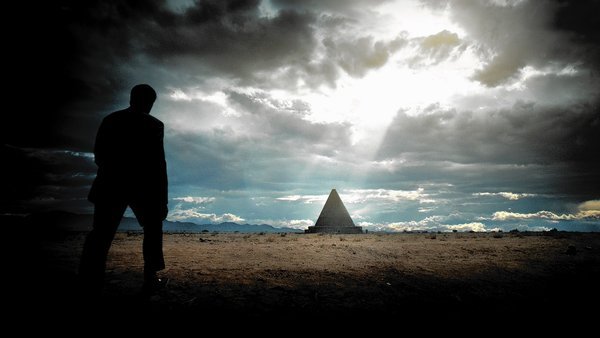
Earth May Be in Early Days of 6th Mass Extinction
Earth may be in the early stages of a sixth mass extinction, an international team of scientists says.
Image: Neil deGrasse Tyson walks over to ‘The Halls of Extinction’ - Cosmos: A Space time Odyssey
Animals and plants are threatened. More than 320 land vertebrates have gone extinct since 1500, the researchers said. The world’s remaining animals with backbones are 25 percent less abundant than in 1500— a trend also seen in invertebrate animals, such as crustaceans, worms and butterflies, the scientists reported.
The previous mass extinction, which wiped out the dinosaurs, happened about 65 million years ago, likely from a catastrophic asteroid that collided with Earth. In contrast, the looming sixth mass extinction is linked to human activity, Rodolfo Dirzo, a professor of biology at Stanford University in California, said in a statement. Dirzo is the lead author of the new review of past research on the topic, which suggests Earth is in the early days of this sixth mass extinction.
A past study, which involved data from the fossil record and modern-day conservation biology, suggested Earth could enter such a mass extinction within the next 300 to 2,000 years. That study was detailed in the March 2, 2011, issue of the journal Nature.
Up to one-third of all vertebrates are threatened or endangered, the researchers said. Large animals — such as elephants, rhinoceroses and polar bears — have the highest rates of decline, which is a trend shared by other mass extinctions. These large animals are at particular risk because they tend to have few offspring and low population growth rates. Hunters and poachers, however, find their fur, meat, tusks or horns attractive targets.
Losing a species of large animal can have unexpected effects on the ecosystem and nearby human developments, a process known as defaunation. In one study, researchers isolated patches of land from animals, including zebra, giraffes and elephants. Without the animals, the grass and shrubs grew tall, and the soil became looser. Rodents quickly took over and doubled in numbers, eating the seeds from the plants and living in the patchy soil that was relatively predator-free.
Rodents can carry diseases and parasites that infect people, the researchers said.
“Where human density is high, you get high rates of defaunation, high incidence of rodents and thus high levels of pathogens, which increases the risks of disease transmission,” Dirzo said. “Who would have thought that just defaunation would have all these dramatic consequences? But it can be a vicious circle.”
The decline of big animals affects not only vegetation, but also invertebrates. In the past 50 years, the human population has doubled, and the number of invertebrate animals has dropped by 45 percent, the researchers said. Much of the loss is a result of habitat destruction and global climate disruption, the researchers said.
(via blackmormon-blog)
 itsdds reblogged this from scinerds
itsdds reblogged this from scinerds thisistheonlyurlicouldget reblogged this from jambvds
mcm-curiosity liked this
dancing-over-ur-bullshit reblogged this from scinerds
patience-and-tea-blog reblogged this from scinerds
thedaisywitchdiary-blog liked this
dancing-over-ur-bullshit liked this
pleasantlyjollystranger-blog reblogged this from scinerds
pleasantlyjollystranger-blog liked this
shallowedv reblogged this from scinerds
pine-juice liked this
vishnugo reblogged this from scinerds
vishnugo liked this
1215x0119x0621 liked this
reneefournierxo liked this
iodine-kisses liked this
maddfree liked this
 xnuk1 reblogged this from winterdyldo
xnuk1 reblogged this from winterdyldo oceanskysailor reblogged this from imactuallytrying
oceanskysailor liked this
winterdyldo reblogged this from imactuallytrying
retyuiok984398 liked this
morglee17 reblogged this from scinerds
terra-dira reblogged this from scinerds
deathistheroadtoawe liked this
frank-vulcan liked this
pastamic reblogged this from scinerds
pastamic liked this
fluid-life-blog liked this
tbvz reblogged this from b-0utique
queen-with-the-queen-shirt liked this
shsuofficesustainability-blog reblogged this from scinerds
ohhhwordd reblogged this from globalwarmingbegone-blog1
b9-f6 liked this
 little-dipp liked this
little-dipp liked this percepth liked this
mmmmhmmmmmmm1234 reblogged this from scinerds
 scinerds posted this
scinerds posted this - Show more notes